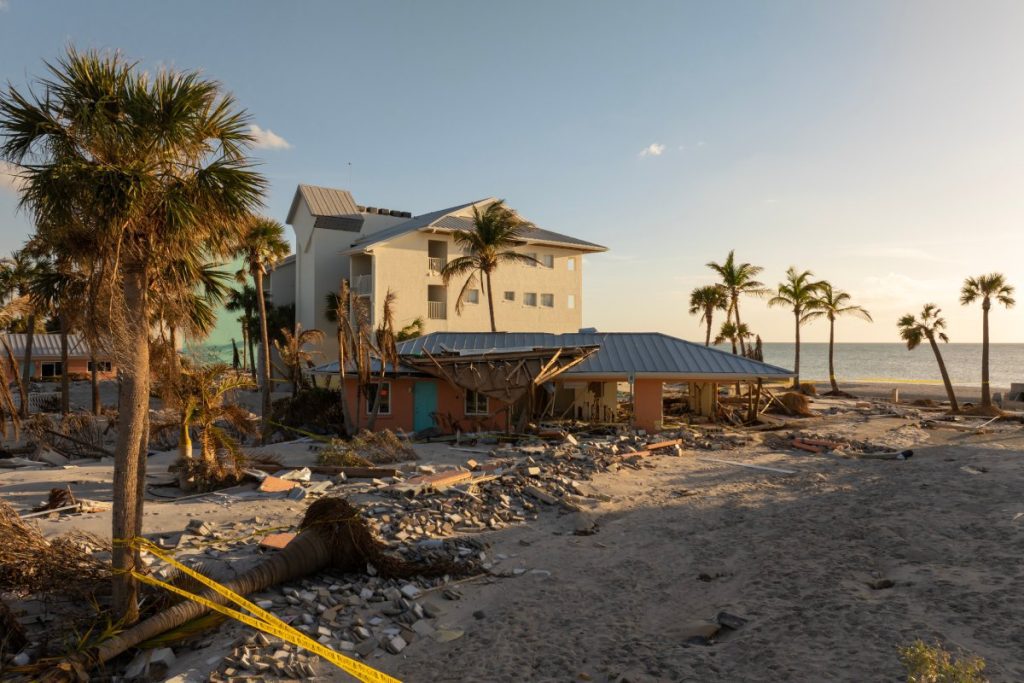Natural disasters like hurricanes often leave devastation in their path, as seen with Hurricanes Helene and Milton. These storms not only damaged countless Florida properties but also created emotional and financial turmoil for Floridians. Yet many homeowners find themselves unprepared to handle the complex process of filing hurricane insurance claims, often missing critical deadlines that could safeguard their financial recovery.
Understanding Florida’s specific hurricane insurance claim deadlines, guidelines, and hurricane deductibles is crucial to protect your rights and avoid costly mistakes. This post will guide you through the key damage claims deadlines, understanding your property insurance policy, navigating the claims process, avoiding common pitfalls, and more to ensure you’re equipped to recover from future damage.
Key Deadlines for Filing Hurricane Insurance Claims in Florida
When disaster strikes during hurricane season, understanding the timeframes for filing storm damage claims is non-negotiable. Florida law mandates strict deadlines for initial claims, supplemental claims, and lawsuits related to hurricane insurance. Here’s what you need to know.
Initial Claims (Florida Statute § 627.70132)
Deadline: Initial hurricane damage claims must be filed within 1 year of the date of loss.
Example deadline for Hurricanes Helene and Milton:
- Hurricane Helene (loss date: September 26, 2024) → Deadline is September 26, 2025.
- Hurricane Milton (loss date: October 9, 2024) → Deadline is October 9, 2025.
Failing to file your initial claim on time could forfeit your right to any reimbursement for hurricane damage, so act promptly.
Supplemental Claims (Florida Statute § 627.70132)
Deadline: These must be filed within 18 months of the loss date. Supplemental claims enable homeowners to report overlooked damages or further damage that is discovered after initial repairs.
Example deadline for Hurricanes Helene and Milton:
- Hurricane Helene supplemental claims are due by March 26, 2026.
- Hurricane Milton supplemental claims are due by April 9, 2026.
Lawsuits for Breach of Contract (Florida Statute § 95.11)
Deadline: You have 5 years from the date of loss to file a lawsuit if the insurance company delays or underpays your claim. This provides a vital safety net for policyholders facing uncooperative insurance companies.
Pro Tip: Stay Organized with a Claims Deadline Checklist
- Mark initial and supplemental claim deadlines on your calendar.
- Set reminders 30 days prior to each deadline to ensure any required actions are taken.
- Keep detailed records, including your policy number, claim documentation, and deadlines.
Breaking Down Your Insurance Policy
Not all insurance policies are created equal; understanding yours is essential for effective claims management. Here’s a breakdown of critical terms and coverages relevant to Florida homeowners.
Wind vs. Flood Coverage
Hurricane season in Florida often brings not only hurricanes but also tropical storms, tornadoes, and other severe weather. Each of these events can cause significant water damage and wind-related destruction to homes and businesses. Having a comprehensive windstorm policy can protect you against costly repairs and ensure you receive the necessary coverage for storm-related damages.
- Wind Damage: Standard homeowners’ insurance policies typically cover damage from high winds, such as roof damage or broken windows.
- Flood Damage: Flooding caused by storm surges or rising water levels is not covered under most homeowners’ policies. You must have a separate flood insurance policy through the National Flood Insurance Program (NFIP) or private insurers.
Coverage Exclusions
Some policies include “anti-concurrent causation clauses,” which deny coverage when uncovered flooding exacerbates wind damage. Ensure you carefully review exclusions in your policy to avoid surprises during the claims process.
Coverage Limits
Replacement Cost vs. Actual Cash Value:
- Replacement cost pays for rebuilding or replacing damaged property at current prices.
- Actual cash value factors in depreciation, often resulting in a much smaller payout.
Be aware of these terms to accurately estimate your potential payout. By understanding these distinctions, you can more effectively evaluate your insurance coverage and plan for potential gaps.
Navigating the Claims Process
Filing an insurance claim in Florida can be cumbersome, but following a structured process increases your chances of receiving fair compensation.
1. Timeframes for Responses
Florida law requires insurance companies to:
- Acknowledge your claim within 14 days.
- Accept or deny the claim within 90 days, provided all necessary documentation is submitted.
- Monitor these timeframes to ensure your claim remains on track.
2. Handling Adjusters
Insurance adjusters assess the extent of your property damage, but they work for the insurance company. Here’s how to protect your interests:
- Accompany the adjuster during inspections to point out all damages.
- Consider hiring a public adjuster or contractor to advocate for you if you suspect underestimations in the insurer’s report.
3. Understanding Payouts
Partial Payouts: Insurers may release partial payments for immediate repairs. Hold onto these funds for their intended purpose to avoid complications with claims.
Coverage Denials: If your claim is denied, thoroughly review the insurance company’s explanation of the denial. You may have grounds for an appeal or legal action.
Florida Hurricane Policies and Federal Assistance
For damage not covered by standard homeowners’ insurance policies, federal programs like the NFIP can provide additional financial support:
National Flood Insurance Program (NFIP)
Coverage:
- Building damages up to $250,000
- Personal property damages up to $100,000
Limitations:
- Excludes additional living expenses, such as temporary housing
Beyond NFIP
If NFIP limits aren’t enough, private flood insurance with higher caps or broader coverage may be a better alternative.
Key resources, like the NFIP Claims Handbook, can guide you through the specifics of making flood-related claims.
Why Are Claims Denied? Common Mistakes to Avoid
Unfortunately, insurance denials are common following natural disasters. Avoid these common missteps.
- Missed Deadlines: Florida law is strict. Claims filed outside the allowable timeframe are likely to be dismissed.
- Incomplete Documentation: Always submit thorough evidence, including photos, videos, repair estimates, and receipts, to ensure complete documentation.
- Lack of Policy Understanding: Misinterpreting your deductible, exclusions, or coverage limits can lead to filing invalid claims.
If your claim is denied, consulting an insurance attorney can provide clarity and improve your chances of a successful appeal. Read our guide on handling claim denials for further tips.
Take Action Today to Protect Your Rights
Hurricanes disrupt lives and cause significant financial loss, but knowing how to file hurricane insurance claims correctly can make all the difference. Stay informed, act promptly, and ensure you’re prepared to protect your most valuable asset.
If you’re struggling with hurricane insurance claims, contact Merlin Law Group today for a free consultation. Our expert attorneys specialize in resolving delayed, denied, or underpaid claims, ensuring you receive the compensation you deserve.



